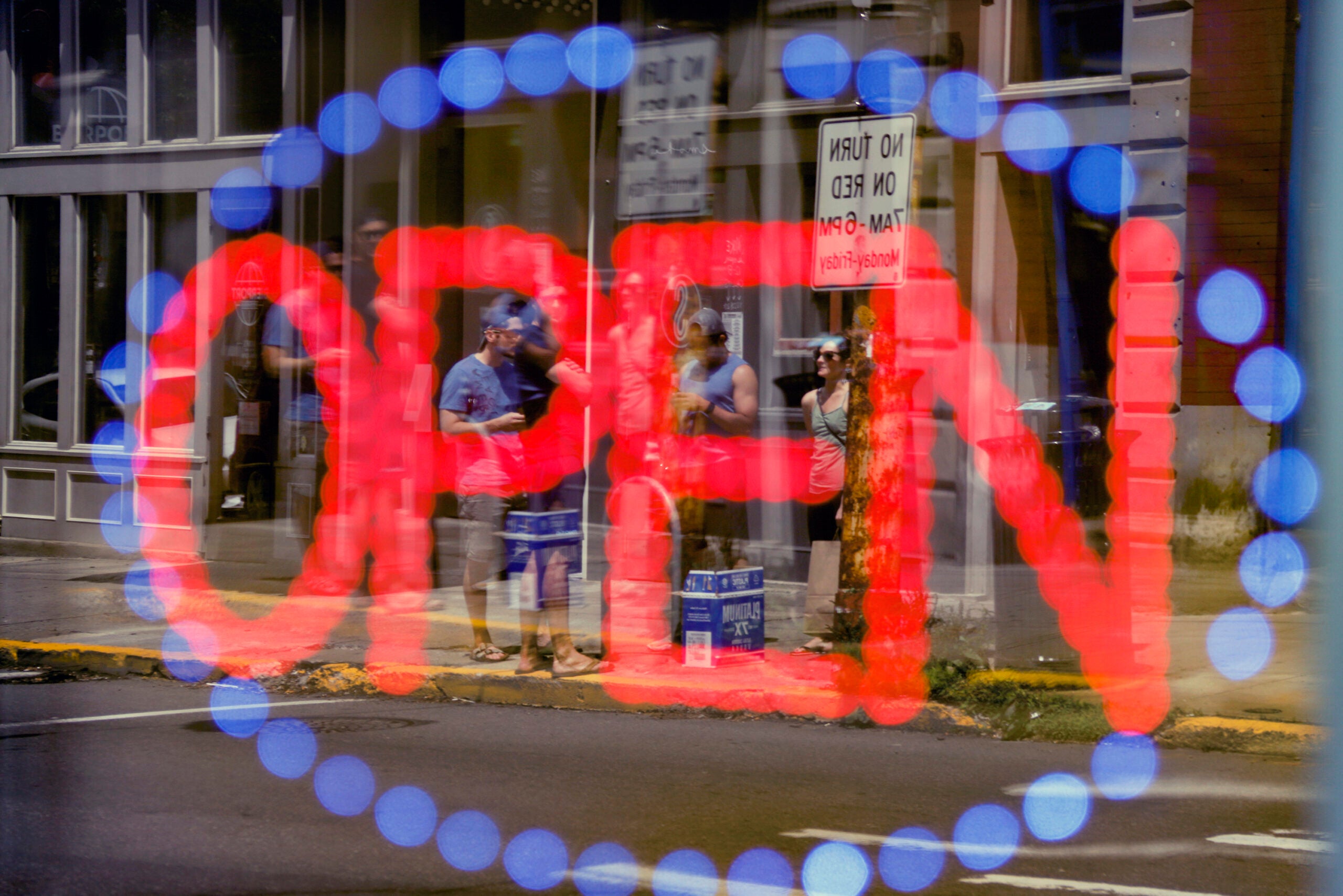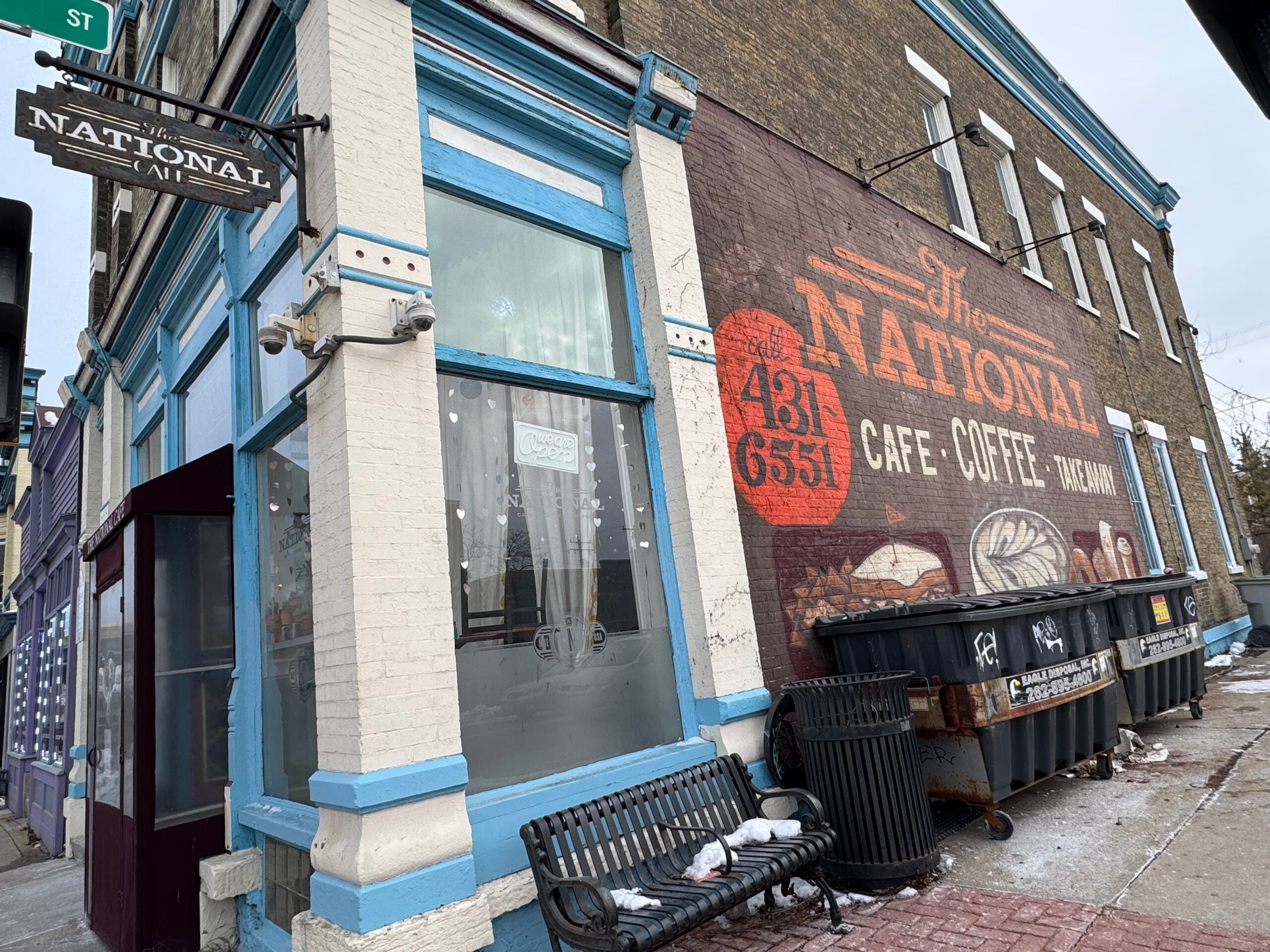After Angie Kiminski’s first week of reopening Angie’s Closet — her women’s clothing consignment shop in Superior — to in-person shoppers in mid-May, she estimated she spent $200 on hand sanitizer, fabric cleaner and other supplies.
Kathy Kuderer runs The Village Shops at Down A Country Road, a group of six gift shops on her family’s farm in Cashton, selling items made by local Amish families and crafters. She said hand sanitizer is a new expense, costing her $60 for a half-gallon that she expects to go through quickly.
Joan Johnson is in the process of moving her women’s clothing consignment store, Sunrise on Main, to a new location in Green Bay. When she reopens the shop in early June, she plans to steam every piece of clothing that comes into the store, routinely wipe down all frequently-touched areas and install a plexiglass shield to put between the cash register and the customers — costs she estimates could amount to $100 a month.
News with a little more humanity
WPR’s “Wisconsin Today” newsletter keeps you connected to the state you love without feeling overwhelmed. No paywall. No agenda. No corporate filter.
Kiminski, Kuderer and Johnson are among the small Wisconsin retailers slowly reopening their businesses to in-person shoppers following the end of state and most county stay-at-home orders. Their experiences speak to the increased costs of operating a business safely during the pandemic, at a time when it’s uncertain whether retailers will see shoppers return.
Pandemic Causes Retail Sales To Plummet
The retail sector nationwide has been hit hard by stay-at-home orders. The U.S. Department of Commerce released an advanced report on May 15 showing a more-than 16 percent drop in retail sales between March and April, the biggest monthly drop since 1992 when the agency’s records start. Major national retailers like JC Penney and Neiman Marcus have filed for bankruptcy amid the crisis.
As for Wisconsin, a University of Wisconsin-Oshkosh survey in May of close to 1,400 small businesses across the state found that retailers were reporting sales were down $5 million this April compared to the same time last year. Jeffrey Sachse, interim director of UW-Oshkosh’s Center for Customized Research and Services, said that made the retail sector the second-hardest hit by the pandemic, after restaurants and hotels.
Kiminski estimated that April sales at Angie’s Closet were down 50 to 60 percent compared to the same time last year. Kuderer said the Cashton shops’ peak season is usually May through October, but so far sales are down 93 percent from where they were last year.
Many stores had to come up with creative solutions during the shutdowns to keep their business afloat. After Gov. Tony Evers announced Wisconsin’s “Safer At Home” order on March 24, Kiminski quickly began brainstorming ways to sell inventory safely.
“I have a mortgage. I have utilities. I own my building,” she said. “So I definitely had to, had to do something.”
Kiminski tried curbside pickup, posting pictures of outfits for sale on her Facebook and Instagram. When a customer would drive up to her shop to make a purchase, Kiminski would drop the clothes in their passenger seat, and the customer would put money in a bucket that Kiminski would take inside and sanitize.
It was a system that was “weird,” Kiminski acknowledged with a laugh, and one that involved a lot of running.
Small Businesses Among Most ‘Financially Fragile’
Like Kuderer, Kiminski and Johnson, the vast majority of retailers across Wisconsin — between 75 and 80 percent — are small businesses with fewer than five employees, according to U.S. Census Bureau data. An April survey of nearly 6,000 small businesses across the country by the National Bureau of Economic Research found that small businesses are some of the most financially fragile, with about three-quarters of respondents saying they had enough cash to cover two months of expenses or less.
Researchers note that the survey over-represents coastal states and was voluntary, which may mean businesses more affected by COVID-19 were more likely to participate.
Kiminski, Kuderer and Johnson all accessed some form of federal or local emergency funding to help cover costs. Each said they were thankful to get it, though Johnson and Kuderer said the funding didn’t cover much.
Kiminski said that while expenses like sanitizer and cleaner are manageable for now, they could add up if the pandemic persists. Kuderer also anticipates expenses down the road.
“As we get busier — hopefully busier — throughout the season, I think it’s going to be crucial that I hire an employee to actually help keep the social distancing to where it needs to be,” she said. “Make sure there are not too many people in each of the buildings, that sort of thing. And I really cannot afford to hire someone, so I’m not sure how that’s all going to play out.”
For their businesses to fully rebound, many stores are counting on more foot traffic. That’s particularly true for smaller retailers, according to Hart Posen, a management and retail expert at the Wisconsin School of Business at University of Wisconsin-Madison.
The reliance on foot traffic partly stems from small retailers not having big online operations, said Posen.
“It costs the same to have that great web presence whether you have one physical retail location or 30 physical retail locations,” Posen said. “There are tremendous economies of scale.”
Tessa Conroy, an expert in small businesses and economic development at UW-Madison, said it’s a risky time for small businesses.
“I definitely think we’re at risk of losing a number of businesses, including retail,” Conroy said. “I think it’s just a really difficult time period. Consumers are spending a little less in some areas than they were, or a lot less in some areas than they were.”
For now, Kiminski and Kuderer said they are starting to see some business return. They are also getting support from their loyal customers and their community. Together We Are Cashton, a group of local nonprofits, recently raised money to buy gift certificates for Kuderer’s gift shop along with other local businesses — support that Kuderer said she feels blessed to have.
Wisconsin Public Radio, © Copyright 2026, Board of Regents of the University of Wisconsin System and Wisconsin Educational Communications Board.







